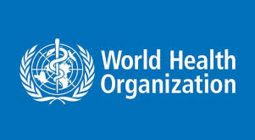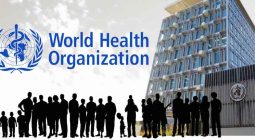Nearly two years into the COVID-19 pandemic, the discovery of a new coronavirus variant triggered global alarm on Friday (November 26) as countries rushed to suspend travel from southern Africa.
A new coronavirus variant potentially more dangerous than the one that has fueled relentless waves of infection on nearly every continent. The World Health Organization (WHO) panel named the variant “omicron” and classified it as a highly transmissible virus of concern.
Omicron’s actual risks are not understood. But early evidence suggests it carries an increased risk of reinfection compared with other highly transmissible variants, the WHO said. That means people who contracted COVID-19 and recovered could be subject to catching it again. It could take weeks to know if current vaccines are less effective against it.
The United States restricted travel from South Africa whereas Canada said it was closing its borders to those countries, following bans on flights announced by Britain, the European Union and others.
Several other countries including India, Japan, Israel, Turkey, Russia, Switzerland and the United Arab Emirates also toughened travel curbs.
WHO said it was designating the B11529 variant, named omicron, as being “of concern”, a label only given to four variants to date.
But it could take weeks for scientists to fully understand the variant’s mutations. Health authorities are seeking to determine if omicron is more transmissible or infectious than other variants and if vaccines are effective against it.
The variant has a spike protein that is dramatically different to the one in the original coronavirus that vaccines are based on.
The coronavirus has swept the world in the two years since it was first identified in Wuhan of China, infecting almost 260 million people and killing 5.4 million.
Discovery of the new variant comes as Europe and the United States enter winter, with more people gathering indoors in the run-up to Christmas, providing a breeding ground for infection.
Omicron has yet to be detected in the United States, said Dr. Anthony Fauci, the U.S. government’s top infectious disease expert.
Israel, one of the world’s most vaccinated countries, announced Friday that it also detected its first case of the new variant in a traveler who returned from Malawi.
Fewer than 6% of people in Africa have been fully immunized against COVID-19, and millions of health workers and vulnerable populations have yet to receive a single dose.

Meanwhile, an anti-COVID-19 pill developed by Merck has proved effective in treating the disease, the US Food and Drug Administration said on Friday (Nov 26) in a much-awaited preliminary report.
The FDA also suggested that pregnant women should not use the drug, known as molnupiravir.
Merck released the full results of the drug’s clinical trial on Friday, which found the pill would reduce by 30 per cent – much lower than its initial figure – the rate of hospitalizations and deaths in high-risk COVID-19 patients who took it soon after infection.






